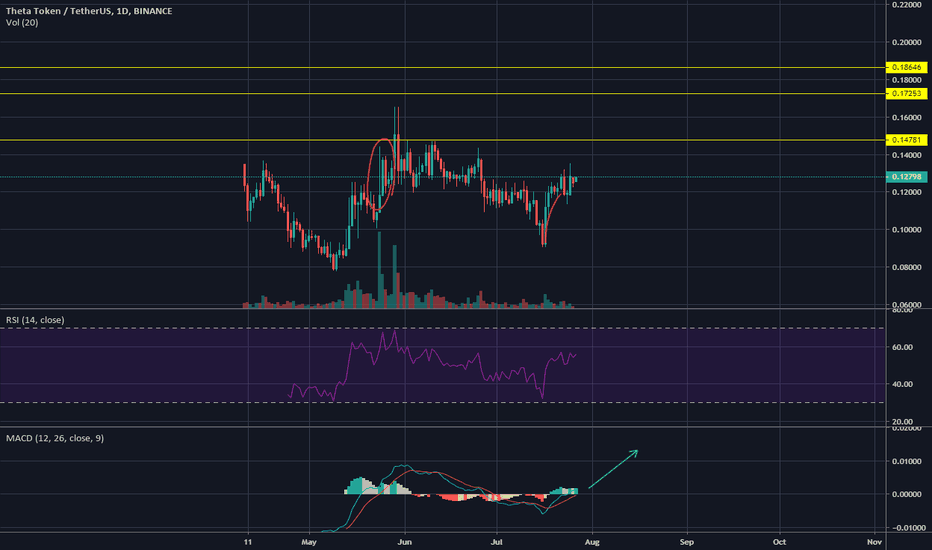
The term “moral suasion” refers to the usage of rhetorical appeals, implicit threats, and persuasion in order to get a person or a group of people to change their behavior. Thus, moral suasion relies on verbal techniques rather than the use of force or coercion to get people to act in a certain manner. However, the precise monetary policy of CBDCs would depend on their individual designs and the goals of the central banks issuing them. The monetary policies of some CBDCs may be more open-ended, whereas those of others may be more closely aligned with existing fiat currencies or cryptocurrencies. The developing nature of digital currencies and the requirement for central banks to adopt this new technology will likely ultimately impact the monetary policy of CBDCs.
What trading a core player looks like – Pension Plan Puppets
What trading a core player looks like.
Posted: Fri, 09 Jun 2023 07:00:00 GMT [source]
Furthermore, it makes it more challenging for governments to manipulate the money supply for purposes of politics or commerce. Qualitative measures in monetary policy play an important role in the development process of the country. Qualitative credit control measures include (1) Prescription of margin requirements (2) Consumer Credit regulations (3) Rationing credit (4) Moral suasion (5) Direct Controls. Effectiveness of authority refers to the ease in which the intentions of the political executive can be transformed into legislative or regulatory action. That is important because the governments and agencies can use implied threats of price controls, additional regulation or taxation to induce certain behaviours from companies.
Purchase Consideration In Business (Method And Payment Structure)
The central bank can impose specify different cash margins for different kinds of transactions. In the United States, the term “jawboning” is used to refer to instances when the U.S. The government, public entity, or policymaker using this strategy is to have targeted members of the economy act according to their wishes. Impure moral suasion is an appeal to a person or others to change their behavior through either incentives or implicit consequences.
- Overseers place great importance on the constructive and open dialogue that is conducted on the basis of mutual trust with the Swift Board and senior management.
- As is generally the case for payment systems oversight, the main instrument for oversight of Swift is moral suasion.
- Thus marginal requirement can be cited as an important tool of the central bank to control inflation and deflation.
- The moral suasion is a more lenient method than other forms of selective credit control methods as it does not involve any punitive action or administration threat.
Thus, even though the central bank is left with little influence on the market in terms of monetary policy tools, it must convince the market otherwise. It is because if the market thinks that a central bank is not in control of the economy, it can lead to a run on the dollar and an overall crisis. The moral suasion is a more lenient method than other forms of selective credit control methods as it does not involve any punitive action or administration threat.
Implementation of Moral Suasion
Besides his extensive derivative trading expertise, Adam is an expert in economics and behavioral finance. Adam received his master’s in economics from The New School for Social Research and his Ph.D. from the University of Wisconsin-Madison in sociology. He currently researches and teaches economic sociology and the social studies of finance at the Hebrew University in Jerusalem.

This strategy is more often used in economics by the authorities to incentivize people or groups of people to act in a certain way or dissuade them from doing something. Moral suasion (or jawboning) is a phrase used in economics to refer to the act of persuading others or a group of people to act a certain way through persuasion rather than force. The only criticism of moral suasion is that it is not backed up by legal consequences or force of law. Neither it is an official regulation where non-compliance results into punishments or penalties. Moral suasion does not aim at monetary benefits only, but it is also used to bring economic stability to a country.
Swift oversight
For example, the minutes of a central bank’s monetary policy review meeting may be framed in a way that signals such a fact. Anyone can, in principle, use moral suasion to try to convince another party to change their attitude or behavior, but in an economic context it generally refers to central bankers’ use of persuasive tactics in public or private. It is often simply called “suasion” and the motives behind it are not always altruistic, but have more to do with the pursuit of particular policies. Other central banks also have a legitimate interest in, or responsibility for, the oversight of Swift, given Swift’s role in their domestic systems.
The arrangement was last reviewed in 2012 when the Swift Oversight Forum was set up. Information sharing on Swift oversight activities was thereby expanded to a larger group of central banks. While Swift moral suasion meaning in banking is neither a payment nor a settlement system, and is therefore not regulated as such by central banks or bank supervisors, it is subject to central bank oversight as a critical service provider.
Moral Suasion (Jawboning): Definition, How It Is Used, Example
Thus we can say that the moral suasion is a psychological phenomenon of controlling the credit in the economy. It is not subject to any law as it is purely informal and involves personal interaction between the central bank and the commercial banks. Centralisation of authority contributes to the effectiveness of moral suasion as a policy tool since it makes the government’s positions clearer and more consistent. Attempts by governments to influence the behaviour of companies and citizens can therefore be understood more clearly. Increased jawboning may have been seen as necessary, given the decreased ability of the Fed to cut interest rates—which were near zero from December 2008 to December 2015—or increase the size of its balance sheet much further.
To achieve macroeconomic goals such as price stability, full employment and economic growth, central banks like the Federal Reserve in the United States set and implement monetary policy for fiat currencies. To affect the money supply and demand in the economy, central banks employ a variety of monetary policy measures, including changing interest rates, conducting open market transactions and imposing reserve requirements. To ensure economic stability, lessen the effects of economic shocks and promote sustainable economic growth, central banks carefully control the money supply and interest rates. However, depending on the unique circumstances and requirements of each economy, monetary policy’s exact goals and tactics may change. Since open market operations are not possible or direct monetary policy tools are not available, the central banks use moral suasion to convince people that it is in control and can support the economy in many ways.
This indicates that central banks may affect the amount of money in circulation and the demand for it in the economy by altering interest rates, conducting open market transactions and imposing reserve requirements. In the U.S., moral suasion is also known as “jawboning,” since it amounts to talk, in contrast to more forceful methods the Federal Reserve (Fed) and other policymakers have at their disposal. More specifically, attempts by central banks to influence the rate of inflation without resorting to open market operations are sometimes called “open mouth operations.” Monetary policy refers to the actions taken by a central bank or monetary authority to manage the supply of money and interest rates in an economy, with the aim of promoting economic growth and stability. To affect the price and accessibility of credit, this may entail altering the money supply, setting interest rates or utilizing other instruments.
Qualitative measures do not regulate the total amount of credit generated through commercial banks. In a situation where a central bank finds itself unable to enact a certain policy measure or prefers not to take explicit action, it may resort to suasion. As fewness of economic agents to be persuaded is a necessary condition for moral suasion to be effective, that policy instrument is more adapted to countries with a higher concentration of suppliers, both in terms of number and of geography. In order to achieve their oversight objectives, the overseers need timely access to all information that they consider relevant.
Using Financial Regulation to Fight Climate Change: A Losing Battle – Heritage.org
Using Financial Regulation to Fight Climate Change: A Losing Battle.
Posted: Thu, 24 Jun 2021 07:00:00 GMT [source]
In this capacity, the NBB chairs the senior policy and technical groups that facilitate the cooperative oversight, provides the secretariat and monitors the follow-up of any decisions taken. When there is a greater flow of credit to different business activities, investment is increased. In the case of deflation, margin requirements are deceased so that demand for loans is increased. In the case of inflation, the margin requirement is increased so that demand for loans is decreased. One of the most notorious examples of moral suasion techniques used is when the New York Federal Reserve intervened to bail out Long-Term Capital Management, an investment company that had lost billions of dollars.
Also, the central bank can request or convince the commercial banks to not to advance additional credit to the public or finance the non-priority industrial sectors. Jawboning is becoming increasingly prevalent as many central banks, after years of low interest rates and aggressive monetary policy, have fewer alternative tools left to boost the economy. This is introduced when the flow of credit is to be checked particularly for speculative activities in the economy. In economics, the phrase “moral suasion” is used by the central banks to refer to ways policymakers can appeal to companies, individuals, or other groups to act in a certain way. A central bank convinces the public of its willingness – and ability – to support economic recovery in the future using tactics of suasion.
Gain unlimited access to more than 250 productivity Templates, CFI’s full course catalog and accredited Certification Programs, hundreds of resources, expert reviews and support, the chance to work with real-world finance and research tools, and more. The Federal Reserve found itself unable to directly fund a bailout of the hedge fund, especially because using taxpayer dollars for the bailout would upset the general populace. They succeeded in creating the impression that the company was too big to fail, and in the end, around 14 banks bailed out the company for $3.6 billion. During the 2000 US presidential election, George W. Bush criticized outgoing President Bill Clinton for not attempting to lower oil prices by “jawboning OPEC” to increase supply. The term jawboning has also been used to refer to Herbert Hoover’s efforts to convince employers to keep wages high as prices fell during the Great Depression. Hoover was successful in obtaining such agreements, but they did little to alleviate unemployment.
In 2012 European Central Bank (ECB) president Mario Draghi said the bank would do “whatever it takes” to preserve the euro, which served to underpin the beleaguered currency and led to its subsequent rebound.

Thus, it helps the central bank to gain the willing cooperation of the commercial banks. The moral suasion proves to be effective only when the central bank gets a full cooperation and respect for its directives from the commercial banks. Swift is committed to an open and constructive dialogue with its oversight authorities. The National Bank of Belgium (NBB) acts as the lead overseer, as Swift is incorporated in Belgium, and is supported by the G-10 central banks. The oversight primarily focuses on ensuring that Swift has effective controls and processes to avoid posing a risk to the financial stability and the soundness of financial infrastructures. A period of expansionary monetary policy is characterized by low interest rates.
A large and growing number of systemically important payment systems have become dependent on Swift, which has thereby acquired a systemic character. Monetary policy refers to the actions taken by a central bank to manage the money supply and interest rates in an economy. Traditional methods of monetary control affect all the sectors without discrimination. For example, helping authorities to achieve specified objectives such as discouraging consumption, speculative types of imports, etc.
